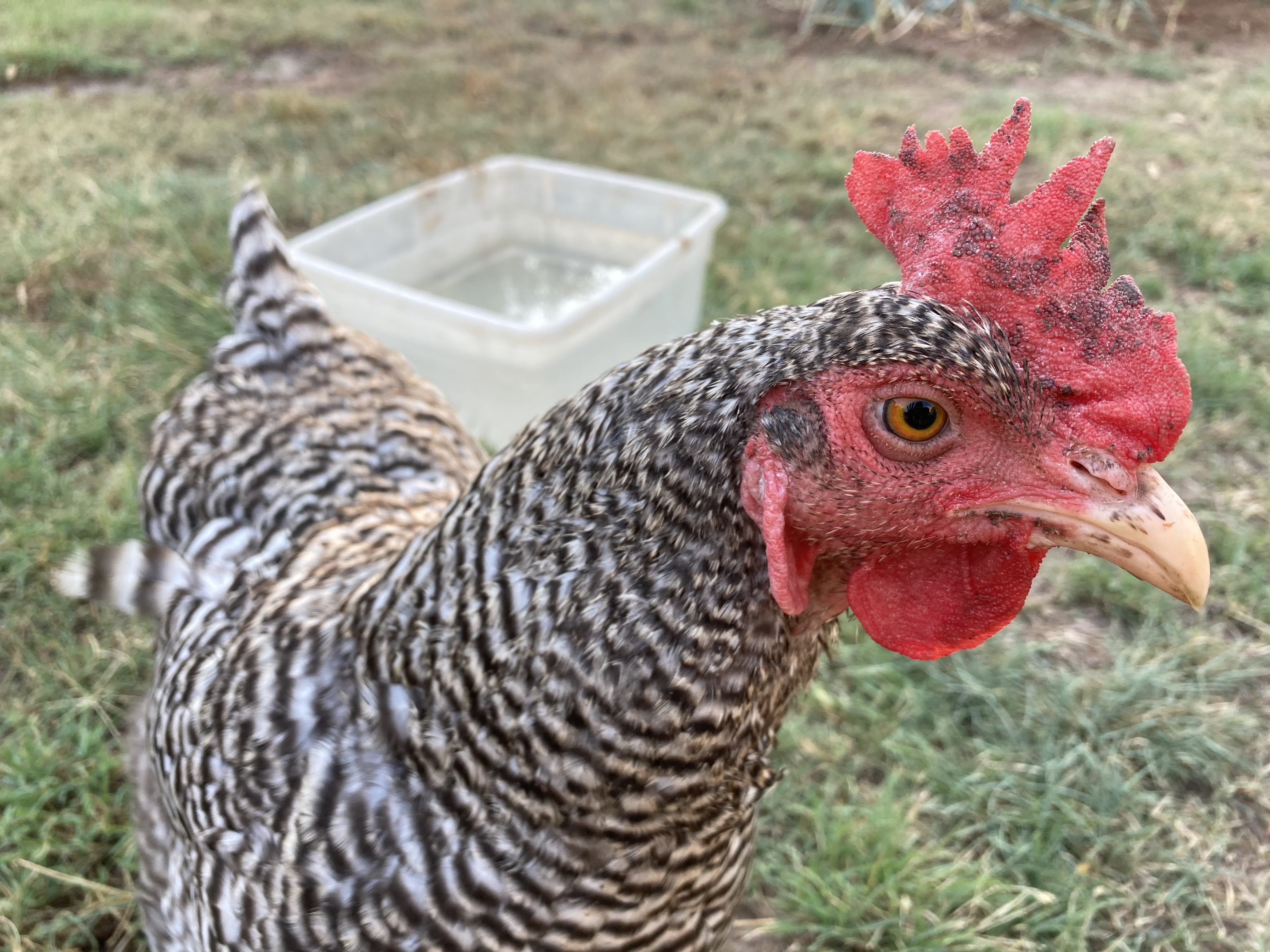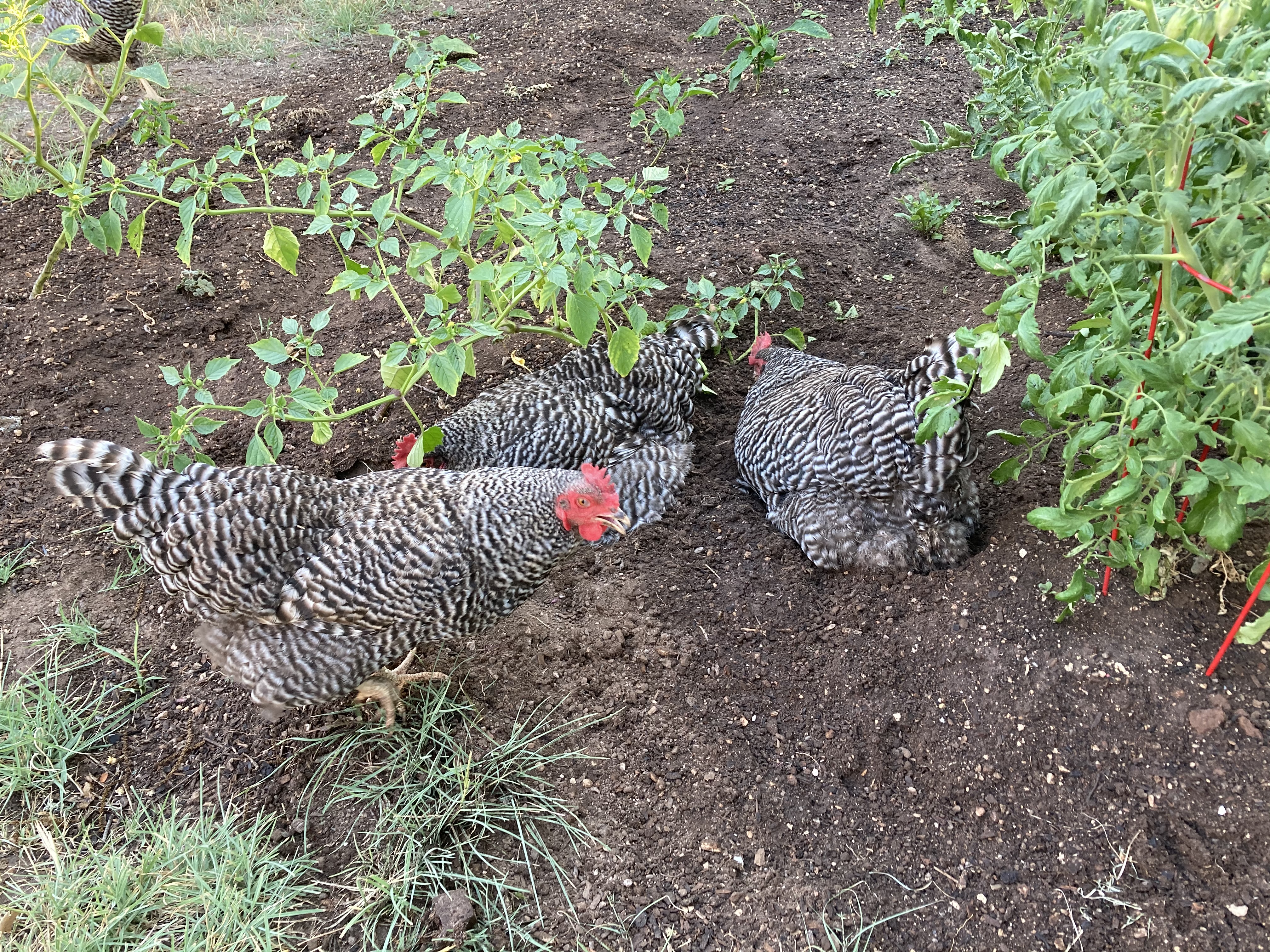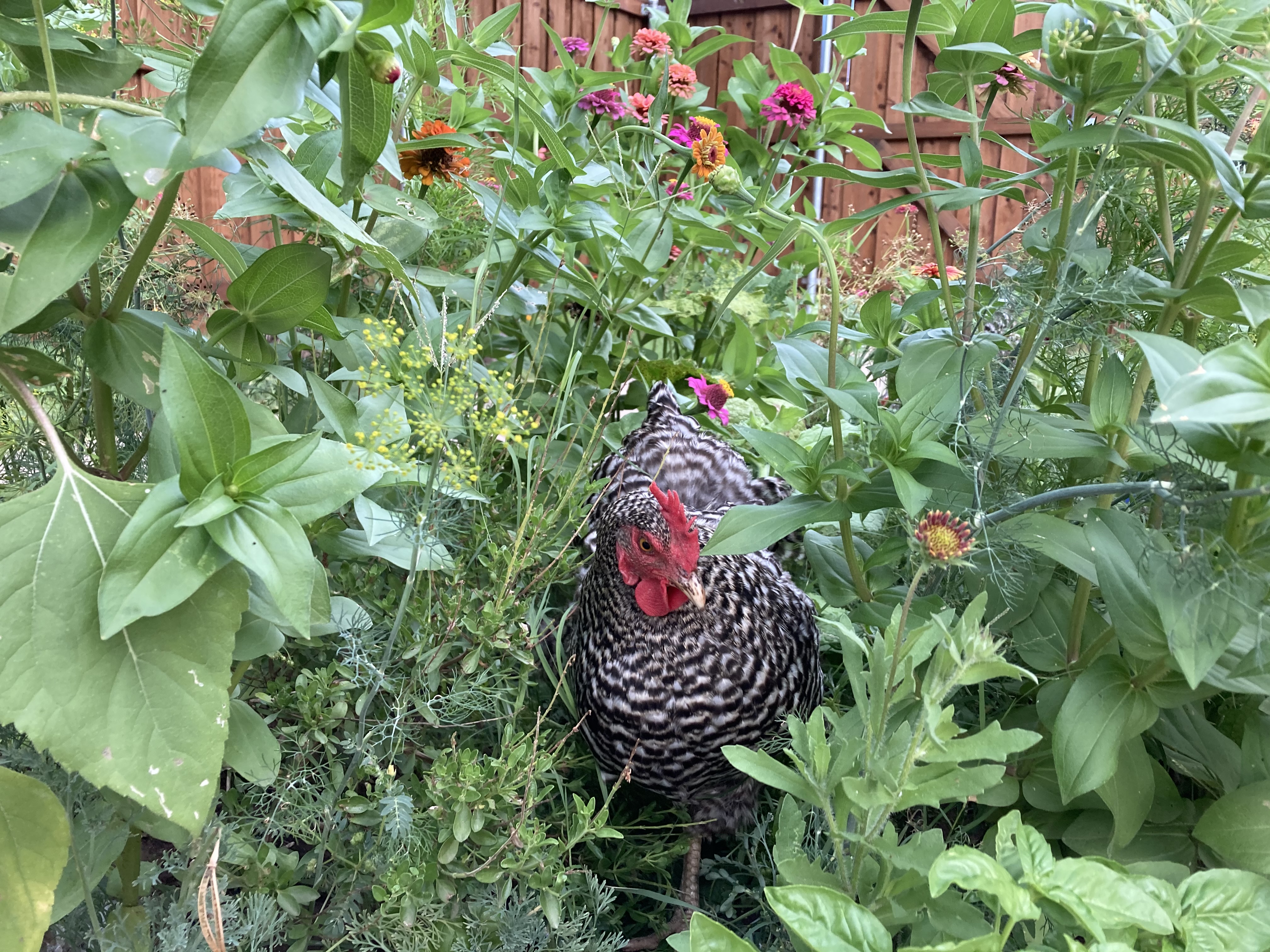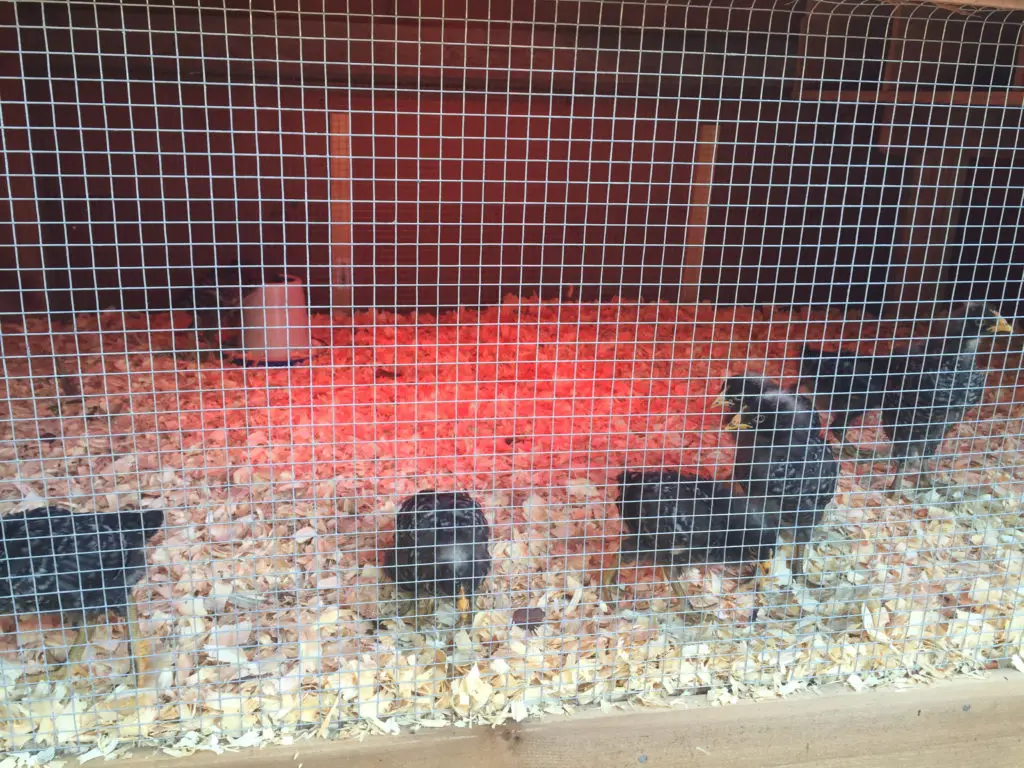Chickens will sneeze from time to time, but this doesn’t necessarily mean they are sick. There are several reasons why chickens will sneeze.
Chickens have a complex respiratory systems that can be sensitive to irritants, like dust, dander, and pollen. When a chicken sneezes occasionally it is not cause for concern. However, consistent or prolonged sneezing can be a sign of respiratory illness and consultation with a veterinarian is recommended.
Keep reading to find out the 8 most likely reasons why your chickens are sneezing.
Most Likely Reasons For Why a Chicken is Sneezing
In general, chickens raised in the backyard are much healthier that the chickens raised in an industrial or commercial setting. When a backyard chicken sneezes occasionally, it’s usually because an irritant has gotten in their nose and they are clearing it out.
Below are some of the more common reasons why your chickens might be sneezing:
- Food particles in nose
- Water in nose
- Dust bathing
- Preening
- Scratching the ground
- Type of bedding
- Dirty bedding
- Wind
1. Food Particles in Nose
It is not uncommon for chickens to sneeze around dinner time. Often, commercial feed can be very dusty from the ground up grains in the feed. Next time you feed your chickens, place some of the feed in your hands and notice that dust is left behind. This dust gets kicked up when your chickens gather around the feeder, pushing each other and jostling around the feeder.
A chicken’s nose is located at the base of their beak where it attaches to their wattle. The location of their nose makes it relatively easy for food particles to get in their nose when they are eating.

If you notice that the sneezing stops after the chickens are done eating, then the cause of their sneezing was most likely due to the dust from their feed.
2. Water in Nose
Similar to dust particles from feed getting in their nose, water can also get in a chicken’s nose and cause them to sneeze.
When chickens drink, they gather water into their mouths and tip their heads upward to let the water go down their throat. They have tongues but they are so little they are not able to effectively push water down a chicken’s throat, so they use gravity in their favor to pull the water down their esophagus.
Once a chicken takes a drink and lifts their head up, it’s entirely possible for water to drip into their nose and cause them to sneeze. This is especially common when chickens drink water from a bowl or trough.
3. Dust Bathing
A common circumstance for chickens to sneeze is during or after a dust bath.
Chickens roll around in fine dust as a way to clean their skin and feathers. During dust baths, chicken will often shake their feathers vigorously, causing dirt and dust to cloud around their bodies. All this fine dirt can be mixed in with pollen and other irritants that can lead a chicken to sneeze.

It’s not uncommon for a chicken to have either a single sneeze or even several sneezes after she gets up from her dust bath. If you can pinpoint that the sneezing started during or after a dust bath, and then quit shortly thereafter, you should not feel concerned about the sneezing.
4. Preening
In addition to dust bathing, another way chickens clean their feathers is by preening.
A chicken will use her beak to spread oil from her uropygial gland near the tail in a behavior known as preening. Once this oil is on her beak, she will run it through the feathers to remove any dirt or mites that are on the feathers.
Preening normally follows dust bathing, so there will be fine dust still on the feathers from dust bathing, which can lead to a few sneezes.
5. Scratching the Ground
Chickens will spend hours every day scratching the ground with their feet, looking for seeds, insects, and grit to eat that is just below the surface of the ground.
During scratching, the top layer of dirt is disturbed. If the chickens are scratching in an area of your yard that does not have grass or vegetation, dust can be stirred up and get in your chicken’s nose.
If your chickens are scratching in a flower bed or the grass when the pollen count is high, the pollen can irritate the chicken’s nose, resulting in sneezing.
My chickens like to walk through my cottage garden that contains zinnias, sunflowers, sage, and several other flowers. They will sometimes have yellow-green dust on their feathers and I can’t help but think this visible pollen on the chickens is a reason for why they sometimes sneeze.

6. Type of Bedding
The type of bedding you use in the chicken coop can cause a sneezing fit with your chickens.
While pine shavings are a great choice for most chicken coops, some chicken keepers notice their chickens sneeze more when they have pine shavings in the chicken coop.
Pine shavings are just that: shaved pine. With this shaved wood, there are fine particles that come off the shavings that can get in a chicken’s nose and cause a tickle.
If you notice your chickens sneeze more often when they are in the coop, you might consider trying an alternate bedding in the coop for a while and see if there is an improvement.
I would also suggest watching your chickens when you let them out of the coop in the morning. Chickens sleep on the roosting bars that are several feet off the ground and when they jump off these bars in the morning onto the bedding in the coop, any dust particles will be disturbed and can lead to sneezing.
If you use flake pine shavings instead of fine pine shavings, there will be more fine particles that can irritate a chicken’s respiratory system. If you use fine pine shavings, try using flake pine shavings instead to see if there is an improvement. Just remember, that it’s normal for chickens to sneeze occasionally, so you might not have a 100% reduction in sneezing by changing the bedding type.

In Types of Bedding for Chicken Coops, I describe alternate types of bedding that can be used in a chicken coop.
7. Dirty Bedding
Another factor related to bedding that can cause chickens to sneeze is when the bedding is dirty.
One of the purposes of bedding in a chicken coop is to capture droppings and control odor, such as ammonia, in the coop.
Ammonia odor is caused by unsanitary conditions, such as excess manure in a coop. High levels of ammonia in a chicken coop can cause “ammonia burn”, or conjunctivitis in chickens, which can lead to blindness. This ammonia odor can also lead to sneezing and watery eyes.
If you can smell ammonia, it’s probably time to add more bedding to the coop or replace it altogether, depending on your preferred method of bedding management in your coop.
Also, it’s a good idea to check the ventilation in the coop if you smell ammonia. Try the three tests described in The Most Important Aspect of a Chicken Coop to see if your coop needs more ventilation.
8. Wind
The last reason why your chickens might be sneezing is if it’s windy outside.
Windy weather can be more common in the the spring, which is also when the pollen counts are high, so this is a double whammy for chickens that are sensitive to flying particles entering their nose.
If a cold front is blowing through, it can also whip up the wind and blow in lots of dirt and dust. Don’t be surprised to find your chickens sneezing if you are also sneezing due to the weather.
One more thing to watch: make sure any fans you have set-up for your chickens are not blowing dirt and dust up. This can be an overlooked reason for sneezing if you aren’t paying attention.
Chickens Have a Complex Respiratory System
Chickens have a respiratory system that is quite different from that of humans and mammals.
They do not have a diaphragm muscle, like humans, that helps air move about their respiratory system, but instead their keel expands when they breath in. This is why it’s important to not squeeze a chicken too tight when you hold them because this could cause them to suffocate.
Chickens have a primary respiratory system where air enters the nostril and then travels through the pharynx and trachea, eventually entering the lungs. While air is in the trachea, it passes through the cilia which are tiny, short hairlike structures that capture dust particles and prevent them from going further into the lower respiratory system.
If a chicken is constantly having their cilia work overtime, due to excess dust in the chicken coop or a high level on ammonia in the air, their trachea will produce excess mucus. This excess mucus can lead to respiratory illness or suffocation in extreme cases.
When a chicken inhales, the air goes from the primary system to the secondary respiratory system which contains nine air sacs. These air sacs circulate air into the body as they occupy the space in a chicken’s body that is not occupied by organs. This air is drawn from the lungs into pneumatic bones.
When a chicken exhales, the air passes over a series of pneumatic bones and membranes which remove water from the air. This process is unique in that it helps prevent dehydration in hot weather. The pneumatic bones connect the chickens skeletal system directly with their respiratory system, another feature of their anatomy which differs from that of humans.
This complex respiratory system is very sensitive, which makes chickens susceptible to many different respiratory illness and diseases. Respiratory disease is the second most common form of death in chickens, behind predation.
When Sneezing Can Be A Concern
While the majority of sneezing in chickens can be relatively benign, there are few instances where it should be taken seriously and a vet should be consulted.
Below are some circumstances when a veterinarian should be consulted about your chicken’s sneezing:
- A new chicken was recently added to the flock
- Discharge from eyes or nose
- Lethargy or lack of energy
- Labored breathing
- Wheezing
- Loss of thirst or appetite
- Runny nose
- Watery or foamy eyes
If you see any of these symptoms in your chickens, your best bet is to call your veterinarian. Not all veterinarians are specialized in treating chickens, but if you can find one that works with birds of any type that should be sufficient.
Fortunately, there are antibiotics that can be given to chickens with respiratory illness that can take care of their issue. You will most likely need to quarantine the sick chicken for a few weeks and depending on any symptoms throughout the flock, you might need to medicate all the chickens and not eat their eggs while they are on the medication.
Backyard chickens that are fed healthy foods, have clean coops, plenty of fresh water, and lots of ventilation tend to be very healthy with limited health issues. Good animal husbandry and coop management practices goes a long way to keep your flock healthy and happy.
An ounce of prevention is worth a pound of cure.
Benjamin Franklin

